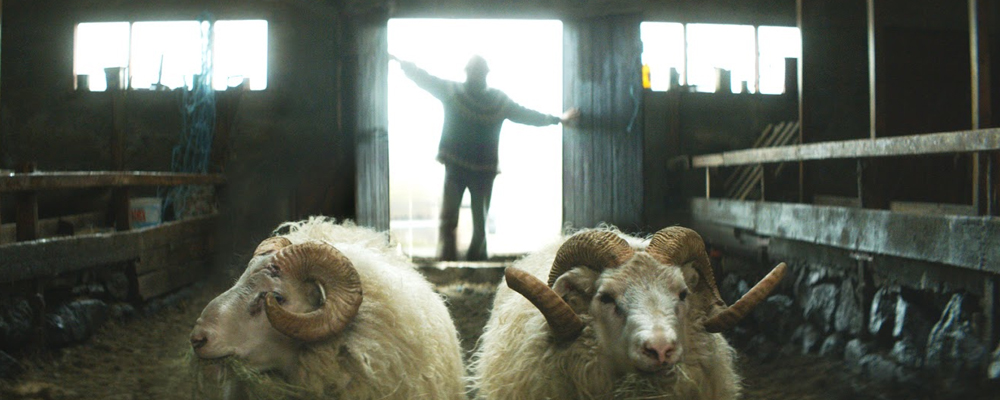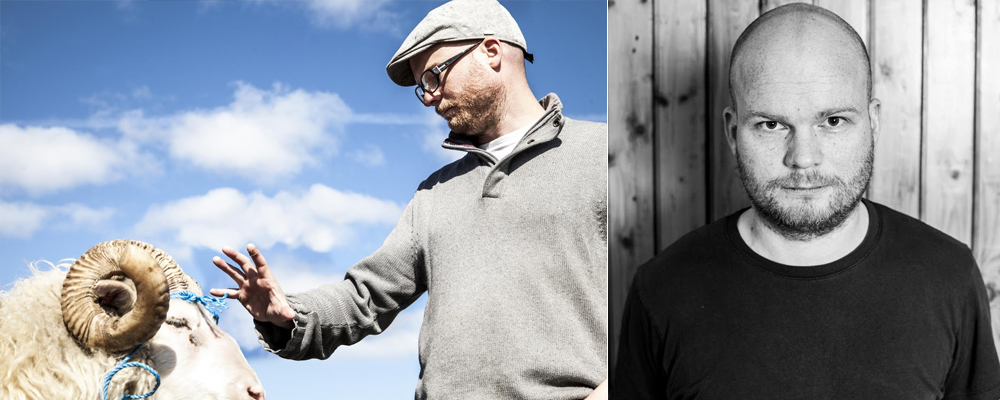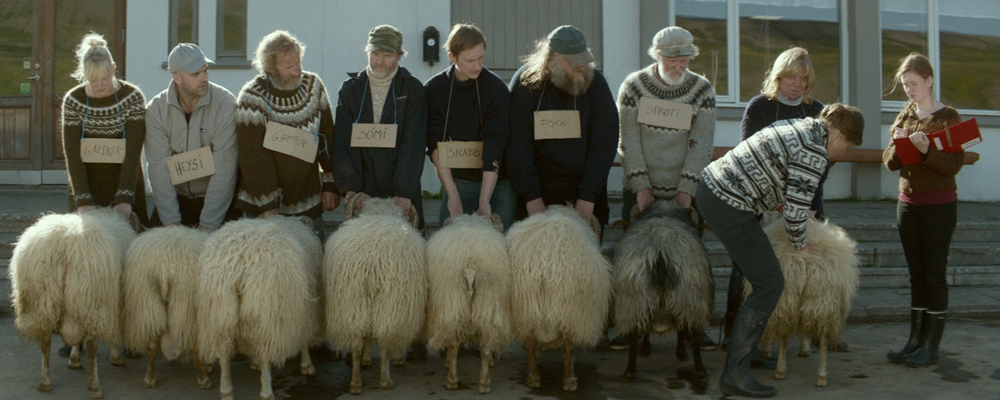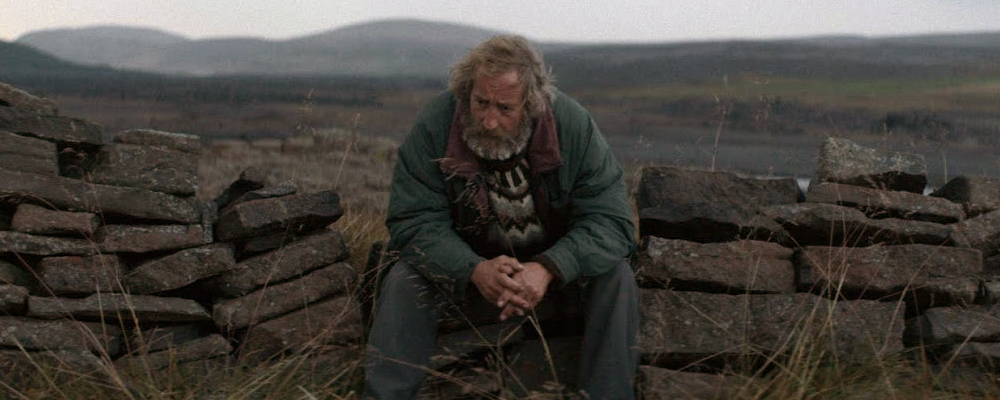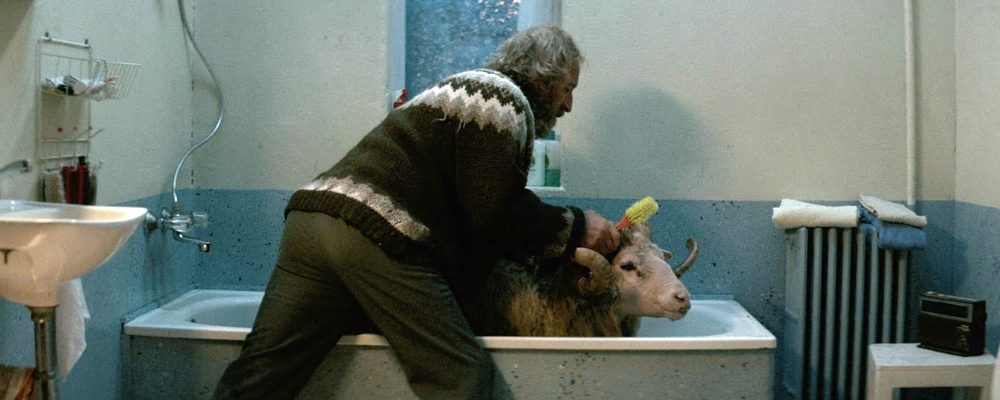Icelandic Director Grímur HáKonarson Discusses His Film ‘Rams’ and Global Warming
Sandra Miska
It’s that time of year when many great films from around the world are being released and one gem cinephiles should be sure to see is the Icelandic import “Rams,” a human dramedy about two sheep farmers and their struggles in rural Iceland.
Entertainment Voice recently spoke with director Grímur Hákonarson about his film, which was surprisingly inspired by true events and his own upbringing in Iceland. He discussed filming in his native land, global warming and casting the right kind of sheep.
What inspired you to tell this story?
Well, it’s based on a true story. It’s a story my father told me about two brothers who fell in love with the same girl when they were young, and she didn’t want either of them, and they kind of blamed each other, and they had to live on the same land. They didn’t speak for 40 years. I thought this true story had this kind of tragic-comic nature. It has elements of both comedy and drama; it’s kind of sad and funny at the same time. I found the story very Icelandic. I think the brothers, they remind me of many Icelandic people. . . they tend to be a bit stubborn and independent. It’s also a little bit about our mentality and the national character of Icelanders.
Did you know a lot about sheep farming before making this film?
Yeah, I had some experience when I was young because my parents grew up on a farm, and I spent some time when I was a kid at my grandfather’s farm. So, I’m familiar with sheep farming.
How did you go about casting?
I knew the actors [leads Sigurður Sigurjónsson and Theodór Júlíusson] slightly before. I wanted the actors to be different types because the brothers in the film are very different. So, that was my main intention. They’re very good actors. They’re very professional and experienced actors. They really wanted to do this film and saw it as a big opportunity. They had [experience] working in the theater. There’s not so many films made in Iceland so if you get an opportunity like this it’s really good for an actor. But I also used some amateurs. The main actors are professional, but some of the smaller roles in the movie are [played by] farmers from the area who had some kind of acting experience from a local theater.
What was it like filming with all those sheep? Were there difficulties?
Yeah, sometimes it was difficult but usually, it was pretty easy. It’s quite unpredictable to work with animals, but I had some good assistance. I had some good people helping me. I found so many good sheep. The sheep we used were super calm and they’re used to being around people. They’re kind of “home” sheep. They’ve stayed on a farm all their lives and have not been wild. That was extremely important, that the sheep we hired had the right frame of mind and could cooperate.
You’ve spoken about how global warming has caused unpredictable weather patterns. Can you speak a little more about how this affected your filming?
We wanted to shoot the winter part in November and usually, there is a lot of snow especially in the north of Iceland. We started to film in the snow and then we were very unlucky because we had the warmest November in the history of our country. All the snow disappeared and after a week everything was green. It looked like spring. So we had to postpone the shooting. We had to come back in January and finish the film.
The final scene was very snowy. Was it real or did you have to import it?
Part of it was real snow. We filmed the first part in real snow. The part in the darkness, we had snow machines. We also did a lot in post production. We had to paint some more snow. We actually used a lot of effort and money to make the snowstorm look real, and I really wanted to create this climax in the film.
Are you hoping to make more films in Iceland? Or are you open to shooting in another country?
I have a script I’m working on in Iceland. It’s called “The County.” It’s a rural lesbian story. But I’m also trying to develop something in English, something maybe I will make in the United States. I can’t really talk about that, but I’m trying to do both. “Rams” is opening a lot of doors for me and I’m getting some offers. Exciting times ahead.
Your next film is called “The County”?
Yeah, it’s a lesbian [story]. It’s about a middle-aged housewife who sort of, when the kids move out of her house, she kind of finds herself and meets another woman.
For people from the United States and other countries watching “Rams,” what do you want them to take away from it and learn about Iceland?
Generally, I just want people to know more about sheep farming and how hard it is to live like this and understand why people decide to live alone with the sheep in the middle of nowhere. Sheep have really strong roots in Icelandic culture and they’re a big part of our history. I also want to tell that story to the outside world.
It definitely came across in the film as a very isolated life. It was apparent how much the rams mean to the farmers. That was really special.
It’s quite unusual. It’s unique because people are not used to watching films that rely so much on a connection with animals. Many people talk about when they go to see the film they don’t know anything about sheep, but they come out really feeling and they really love these animals and they get really excited about sheep. So I think I managed to do what I wanted.
“Rams” opens Feb. 3 in New York and Feb. 5 in Los Angeles.

